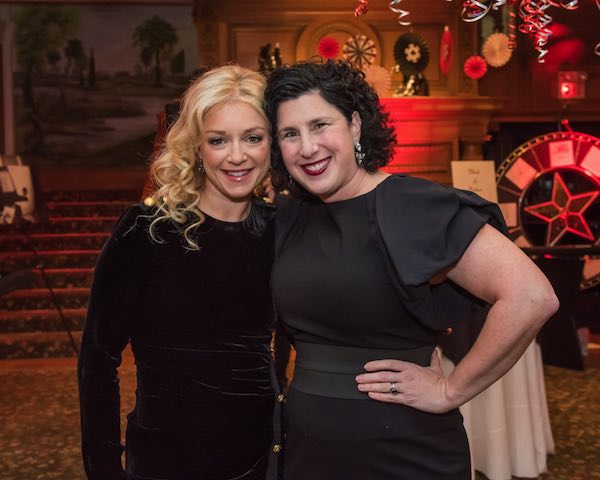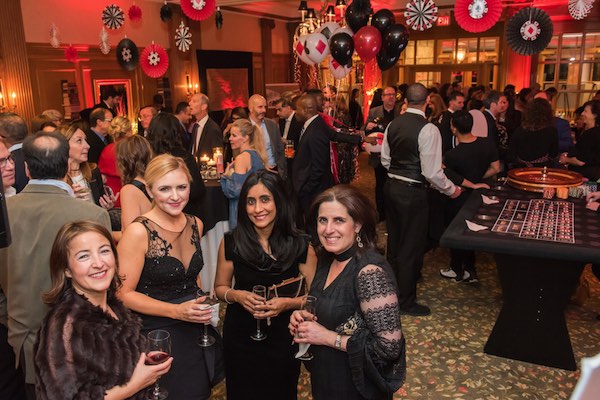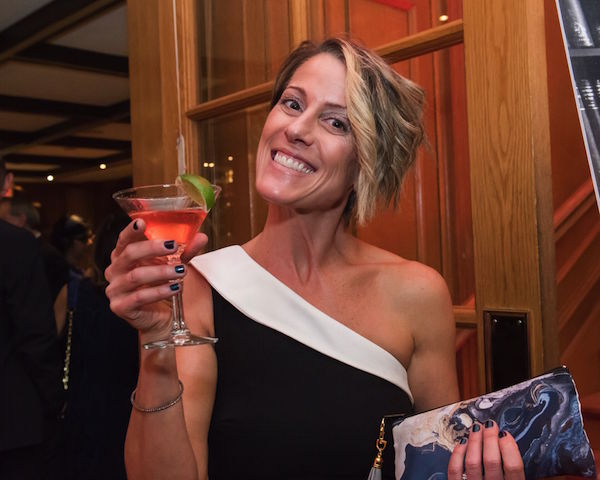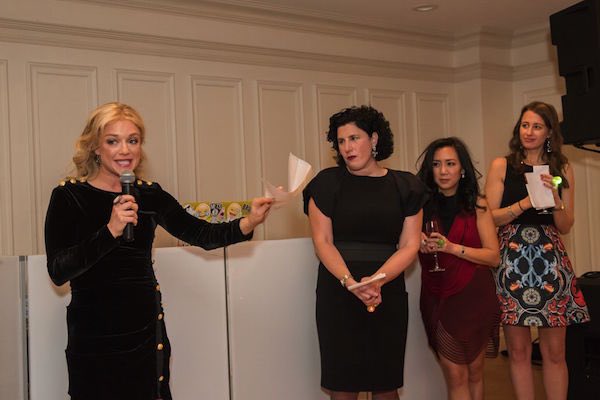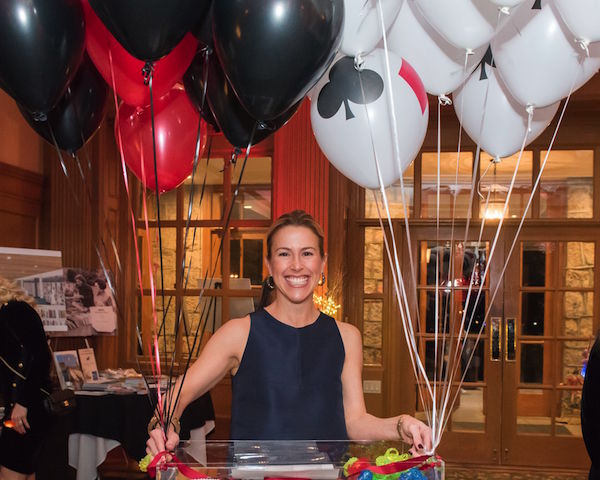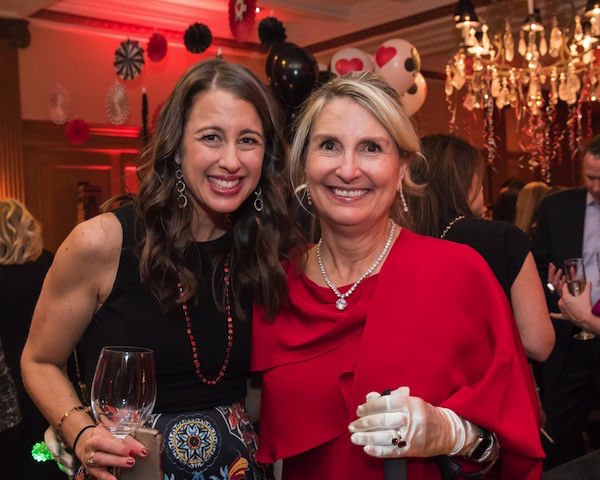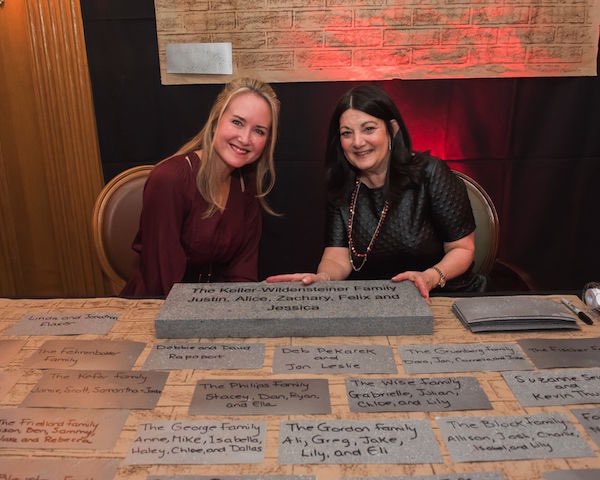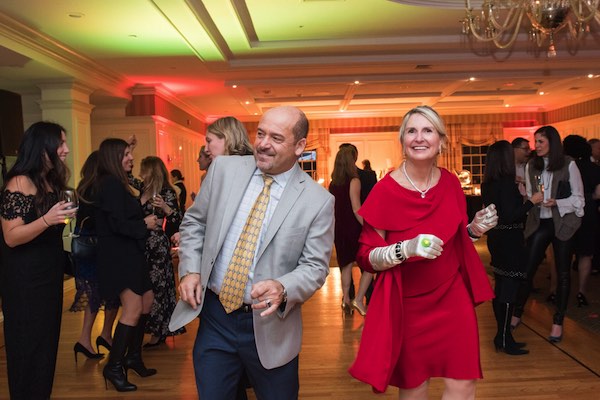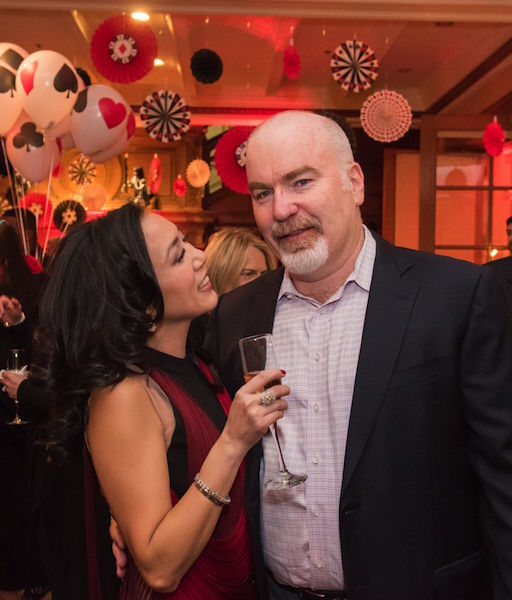Scarsdale Synagogue Gives a Face Lift to Food Bank Social Action Program
- Details
- Written by: Joanne Wallenstein
- Hits: 4836
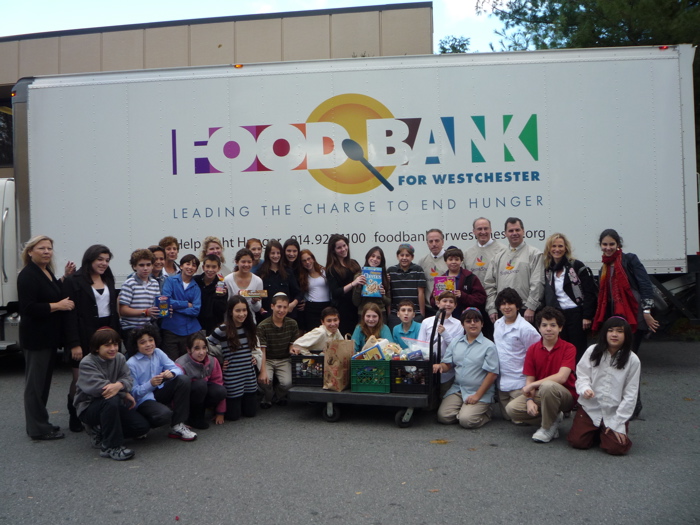 The United Interfaith Food Bank (the "UIFB") is a cooperative of houses of worship in southern Westchester which has been helping to feed the hungry since 2004.
The United Interfaith Food Bank (the "UIFB") is a cooperative of houses of worship in southern Westchester which has been helping to feed the hungry since 2004.
The UIFB will enter a new phase in 2018, partnering with the and with Family Services of Westchester to provide food to low-income and extremely low-income families in White Plains. Through the Food Bank for Westchester, the UIFB is able to obtain food at steeply discounted costs and therefore help feed more individuals at less cost. Family Services of Westchester runs Head Start programs at several sites in White Plains. The young children attending these programs are provided with breakfast, lunch and a snack during each school day but they (and their siblings and parents) are at risk for going hungry on weekends and holidays. The UIFB seeks to help bridge this gap by providing bags of food to these families to supplement what they need to purchase, freeing up some of their limited resources for other family necessities.
Each month, volunteers from the houses of worship comprising the UIFB (Scarsdale Synagogue Temples Tremont & Emanu-El, Scarsdale Congregational Church, Shaarei Tikvah - The Scarsdale Conservative Congregation and St. James the Less Episcopal Church), unpack deliveries from the Food Bank for Westchester, collect supplemental food items, sort and re-pack the food into individual family bags and deliver approximately 100 bags of food to Family Services of Westchester Head Start site(s). Each bag contains a variety of foods such as canned vegetables and fruits, beef ravioli, tunafish, soup, black beans, rice, pasta, pasta sauce and cereal.
Historically, the current members of the United Interfaith Food Bank, together with Christ Church Bronxville, served three sites in the north Bronx from 2004 to 2017, providing 100 bags of food twice a month to three Bronx organizations offering vital services to needy children, families and seniors. Each house of worship has raised funds and/or organized targeted collections, usually tied to major holidays, to encourage congregants to provide food and funds. Anyone wishing to donate to support this worthy program can donate online here. Just select "social action" from the choices of funds. All monetary donations have gone directly to purchasing food as necessary to supplement in-kind donations. We have no administrative costs.
Volunteers are needed.
Contact us here if you are able to help.
Thursday afternoons (once or twice a month), to help unload deliveries from the Food Bank for Westchester;
Thursday afternoons or Friday mornings to sort and pack individual family food bags for delivery to the Head Start children;
Fridays before 2:00 P.M. to deliver food bags to White Plains
Scarsdale Synagogue is a reform Jewish congregation located at 2 Ogden Road, Scarsdale, NY 10583. 914.725.5175. Scarsdale Synagogue Website
Local Artists Decorate War Boots to Benefit Soldiers Abroad
- Details
- Written by: Joanne Wallenstein
- Hits: 6285
 Two local former creative directors have collaborated to create decorated war boots to benefit soldiers in service abroad. These boots will be auctioned off to support iPads for soldiers, a group that brings overseas soldiers closer to their families and loved ones, by collecting donations to purchase iPads for them.
Two local former creative directors have collaborated to create decorated war boots to benefit soldiers in service abroad. These boots will be auctioned off to support iPads for soldiers, a group that brings overseas soldiers closer to their families and loved ones, by collecting donations to purchase iPads for them.
Nanette Koryn and Larry Dalton created their first pair of boots in 2014 when they each designed a boot for the Footsteps to Freedom exhibit that was shown at Art Basel in Miami. At the time, artists from all over the country were commissioned to design one of these real combat-worn boots, and the proceeds went to iPads for soldiers. The showcase was called, "Footsteps to Freedom. ... You take steps everyday and the next time you do, consider walking a mile in the boots of soldiers."
The boots were auctioned for thousands of dollars and the funds were used to purchase the iPads. Koryn's first work, decorated with daisies, is shown on the organization's website.
This year, the two purchased a new boot and collaborated on a labor of love. 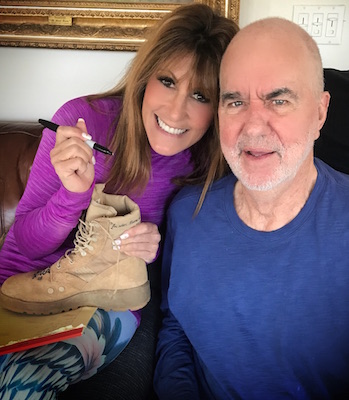 Larry is now battling ALS and the degenerative disease has caused him to lose the use of his very artistic hands. But his mind remains as sharp as a tack. So the two had a lot of fun researching the quotes and laying out the design together. Nanette held the the sharpie, but they both held it together in creative heart and spirit.
Larry is now battling ALS and the degenerative disease has caused him to lose the use of his very artistic hands. But his mind remains as sharp as a tack. So the two had a lot of fun researching the quotes and laying out the design together. Nanette held the the sharpie, but they both held it together in creative heart and spirit.
They created a simple typographic design with various "war quotes", some historic and others well-known, from the current vernacular, covering all the nooks and crannies of the boot.
The quotes range from peace-promoting ones, "An eye for an eye only makes the whole world blind" (Ghandi) and the iconic anti-Vietnam message created by Mothers for Peace in the early seventies, "War is not Healthy For Children And Other Living Things".... to more hawkish ones like, "Locked and Loaded," as well as "Let's roll" (Todd Beamer on United Airlines flight 93)..... and one from the Donald himself.
Learn more about this important effort here:
Here is a quote from a soldier who donated his boots to the artists in 2014:
In these boots I have bled. These are the boots that carried me through in times of great despair. I am SGT Andrew Burge and these are my boots. In these boots I have traveled farther than many men. I have been shot in combat wearing these boots, but these boots brought me back to my feet and allowed 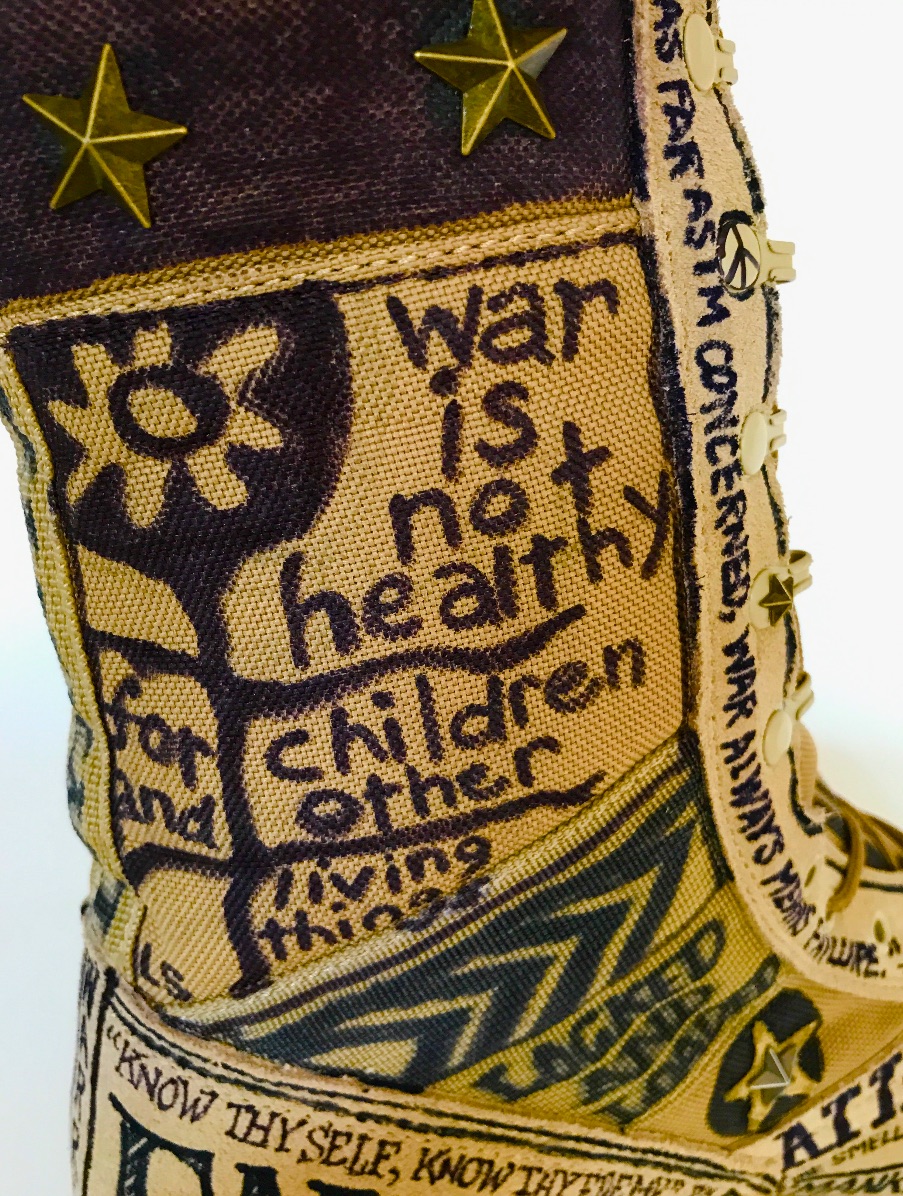 me to fight on. These boots have been there during some of the worst times in my life and have been there during some of the best times of my life. When I gaze upon these boots it takes me back to a time of unforgettable pain, suffering, and loss. The friends I will never see again, the explosions that I thought would remove my lifeless body from these boots, and the memories of looking down at these boots through tears and sorrow as names of soldiers are called out, but they are not present for duty because they have made the greatest sacrifice a soldier can make. I have prayed to these boots, "please keep me moving, don't let me stop, let me make it through just one more time, please don't fail me now." Oh the stories these boots could tell. But I love these boots. These boots are a constant reminder of not only the bad but the good as well. I see these boots and I see the faces of friends long gone and relive the memories of good times in the worst conditions. I feel the camaraderie that only brothers in arms can feel, the bond that never goes away. These boots are a reminder of the unselfishness of soldiers and measures we are prepared to go to in order to preserve the safety of one another and our loved ones back home. We are the other 1%, the less than 1% of the American population who is ready and willing to accept the call to arms and protect the nation from any who wish it harm. In these boots I bore witness.
me to fight on. These boots have been there during some of the worst times in my life and have been there during some of the best times of my life. When I gaze upon these boots it takes me back to a time of unforgettable pain, suffering, and loss. The friends I will never see again, the explosions that I thought would remove my lifeless body from these boots, and the memories of looking down at these boots through tears and sorrow as names of soldiers are called out, but they are not present for duty because they have made the greatest sacrifice a soldier can make. I have prayed to these boots, "please keep me moving, don't let me stop, let me make it through just one more time, please don't fail me now." Oh the stories these boots could tell. But I love these boots. These boots are a constant reminder of not only the bad but the good as well. I see these boots and I see the faces of friends long gone and relive the memories of good times in the worst conditions. I feel the camaraderie that only brothers in arms can feel, the bond that never goes away. These boots are a reminder of the unselfishness of soldiers and measures we are prepared to go to in order to preserve the safety of one another and our loved ones back home. We are the other 1%, the less than 1% of the American population who is ready and willing to accept the call to arms and protect the nation from any who wish it harm. In these boots I bore witness.

Muslim and Jewish Women Deliver Ethnic Treats to First Responders
- Details
- Written by: Joanne Wallenstein
- Hits: 6798
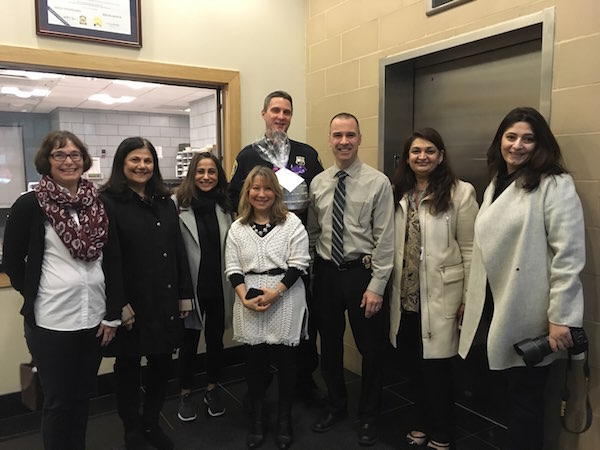 Frustrated with the hostility between Jews and Muslims in the U.S., Scarsdale's Lori Amer decided to do more than opine. After reading in the New York Times about the Sisterhood of Salaam Shalom, a group that brings Jewish and Muslim women together, she got the idea to start a local chapter here in Westchester. Amer, who is Jewish, reached out to Rabia Mian, the Muslim mother of one of Amers' sons friends and suggested forming the chapter. Mobilized by the Muslim travel ban, Rabia recruited seven of her Muslim friends to join them. One of the other mothers happened to teach Lori's first grade daughter's class about Ramadan. Together they formed Westchester Chapter 3 of the Sisterhood of Salaam Shalom. There are now 16 women in the Westchester chapter with six from Scarsdale. They join a national network that was recently featured on the Today Show.
Frustrated with the hostility between Jews and Muslims in the U.S., Scarsdale's Lori Amer decided to do more than opine. After reading in the New York Times about the Sisterhood of Salaam Shalom, a group that brings Jewish and Muslim women together, she got the idea to start a local chapter here in Westchester. Amer, who is Jewish, reached out to Rabia Mian, the Muslim mother of one of Amers' sons friends and suggested forming the chapter. Mobilized by the Muslim travel ban, Rabia recruited seven of her Muslim friends to join them. One of the other mothers happened to teach Lori's first grade daughter's class about Ramadan. Together they formed Westchester Chapter 3 of the Sisterhood of Salaam Shalom. There are now 16 women in the Westchester chapter with six from Scarsdale. They join a national network that was recently featured on the Today Show.
On December 5, the membership of the Westchester Chapter delivered homemade baked goods to police and firefighters in Scarsdale, Rye, Pelham, White Plains, Bronxville, New Rochelle, Mamaroneck and Hastings. They wrapped packages of rugelach and cookies baked by the Jewish women with samosas, a savory Pakistani delicacy, prepared by the Muslim members. The goodies were a way to thank local police and firefighters at holiday time, and also to demonstrate through their group, that those who are different from each other can find common ground.
"I think many of us are feeling the impact of the divisiveness in the country and world, so coming together as sisters to share our commonalities makes us feel united in a goal," said chapter co-leader Lori Amer.
The Sisterhood of Salaam Shalom (SOSS) is a four-year-old national organization comprised of women from the two minority religions to form friendships and together perform acts of charity and kindness. Members believe that their joint acts of goodwill and education can counteract the hatred and prejudice that has proliferated across the country.
SVAC Celebrates Volunteers at Holiday Gathering
- Details
- Written by: Joanne Wallenstein
- Hits: 4918
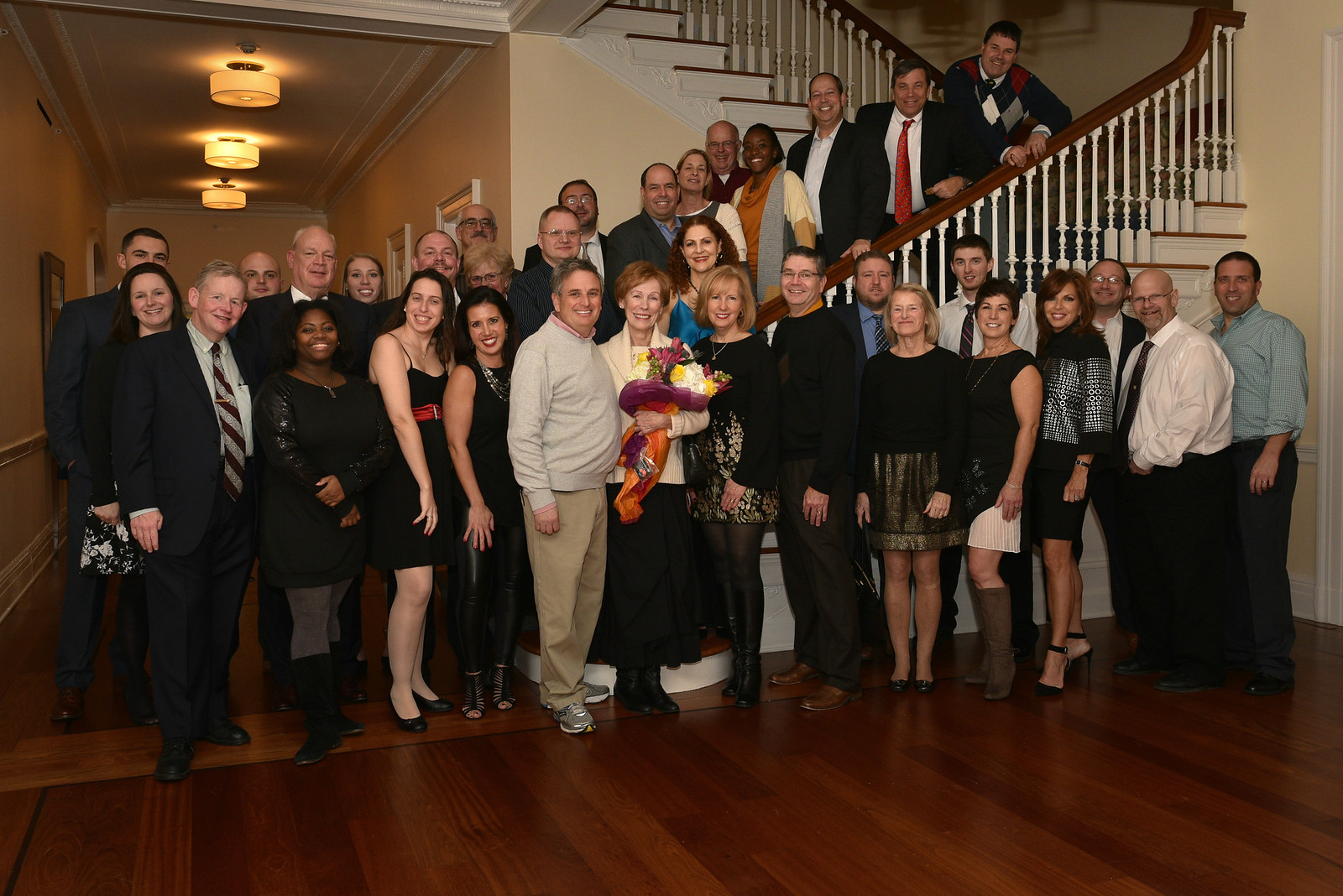 The Scarsdale Village Ambulance Corps held their holiday party and award ceremony at Beach Point Country Club on Thursday night December 14. They celebrated with the White Plains Corps as well.
The Scarsdale Village Ambulance Corps held their holiday party and award ceremony at Beach Point Country Club on Thursday night December 14. They celebrated with the White Plains Corps as well.
Debbie Fuchs was named EMT of the year and Jon Sarles was awarded Paramedic of the Year. Berenice Miller was recognized for 38 years of volunteering for SVAC. She will retire this year.
Photos by Jon Thaler – see more here:
A Festive Celebration for Scarsdale Library
- Details
- Written by: Joanne Wallenstein
- Hits: 10005
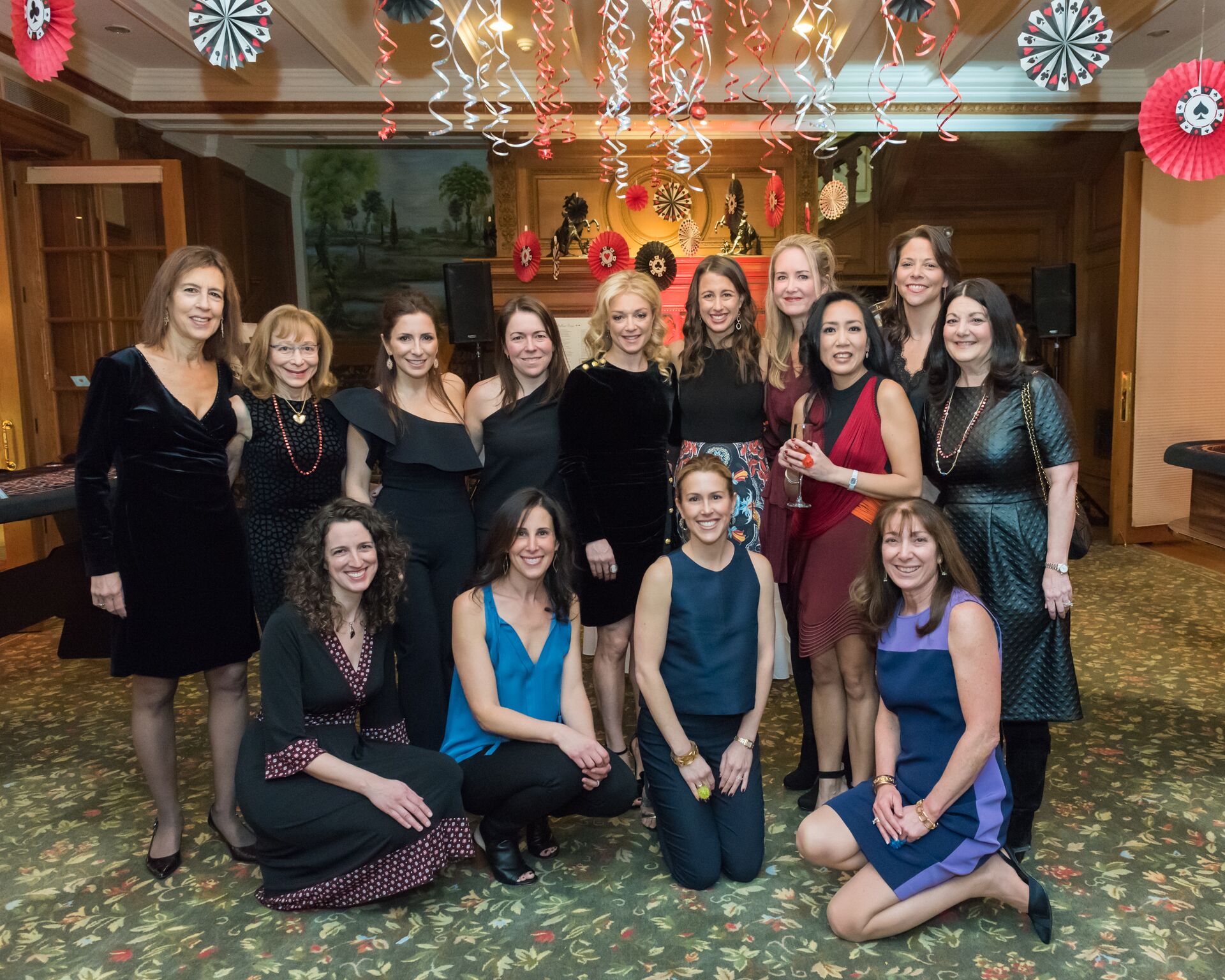 Members of the Friends of the Scarsdale Library Board and Event Volunteers.Scarsdale Library supporters came together Friday night to party and play in the warm, wood-paneled ballrooms at the Fenway Golf Clubhouse, but the atmosphere was anything but subdued. Food and drink were in abundance; the DJ was loud and lively; the games were cool; the prizes were fabulous; and the dance floor was full! Over 400 guests turned out for the "Black, White and Read All Over" Casino night and enjoyed gambling, dinner and drinks, while celebrating with their Scarsdale friends.
Members of the Friends of the Scarsdale Library Board and Event Volunteers.Scarsdale Library supporters came together Friday night to party and play in the warm, wood-paneled ballrooms at the Fenway Golf Clubhouse, but the atmosphere was anything but subdued. Food and drink were in abundance; the DJ was loud and lively; the games were cool; the prizes were fabulous; and the dance floor was full! Over 400 guests turned out for the "Black, White and Read All Over" Casino night and enjoyed gambling, dinner and drinks, while celebrating with their Scarsdale friends.
Many marveled at the inter-generational mix in attendance that included both long-time residents and also those newer to town. FOSL President and Campaign Co-Chair, Dara Gruenberg, remarked that "the Library is a central gathering place for our community and inspires people to want to be a part of the transformation. We are finding that people from all generations and neighborhoods are energized about this project. They simply want to be involved." Event co-chairs Lori Harrison and To-dao Casey could not agree more. As she thanked the generous local business sponsors and the many event volunteers, Harrison said, "We are so lucky to live in such a wonderful community. It is such a highlight to see people from all over Scarsdale coming together to support this great cause." Both Casey and Harrison grew up locally and used the library as children and students, returning now with their own young families. Casey added, "I wanted to become involved with the Library because I have such a passion for it. Having grown up in Scarsdale, I have always been a big library user and I think that our Library, especially has so much to offer - - we just need to fully realize its potential."
Diane Greenwald, President of the Library Board of Trustees, expressed her gratitude on behalf of the Board, "The Library is critically enriched by the ongoing support provided by the Friends." Enjoying the vibe, she quipped, "We may be a sleepy hamlet and home of the lifelong learner, but tonight proves, we are book nerds who can party!"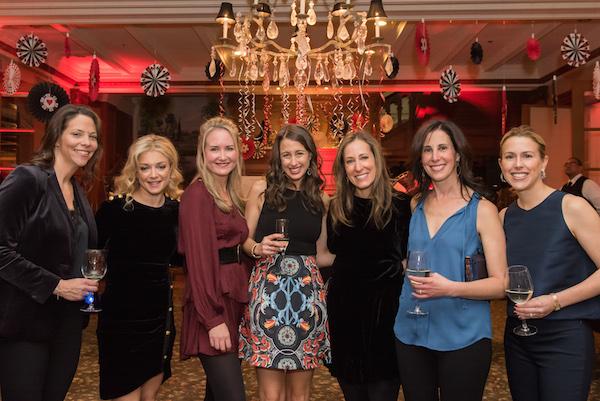
Both Gruenberg and Greenwald acknowledged the support of the Village Trustees, whose trust and encouragement have enhanced efforts to bring Library improvements to the community with integrity and value. Greenwald went on to praise the dedication and detailed oversight provided by the Library Building Committee. And Gruenberg noted the contribution of yet another group of active volunteers, saying, "because of the work of our unbelievably talented Campaign Committee, to date, we have raised almost $6.5 million dollars towards our $7.5 million goal." Her announcement was met with enthusiastic cheers! Such giving is unprecedented in our Village.
As the family of volunteers' grows, so too increases the ways Scarsdale patrons can help the Campaign for Excellence reach its goal. Gruenberg announced the launch of the "Pave the Way" Campaign, where donors can purchase and personalize large pavers that will be set in the Library's plaza and walkway. "This is an opportunity to leave your legacy and mark on our beloved Library for generations to come."
The Friends certainly know how to throw a great party and, considering the success, Scarsdale can only hope they will consider making this gala an annual Scarsdale tradition! Jane Veron, Village Trustee and Liaison to the Library Board, summed it up, "This event was a huge community builder and tremendously positive statement for this exciting project." So, friends -- same time next year?
Library Update: The library Improvement Project seeks to transform the building into a modern center for the community now and for generations to come. The $17.9 M renovation and expansion project is funded by a public/private partnership. Having received a half a million-dollar grant from NYS to outfit the Library's temporary home at Supply Field, the Village broke ground this fall on the 'Library Loft;' and construction documents for the renovation and expansion are almost complete. After 8 careful years of planning and assuming ongoing success of the Capital Campaign, the Library is poised to move to the temporary space and begin construction Spring 2018. Visit the Library Website for more Information.
Photos by Margaret Fox Photography







